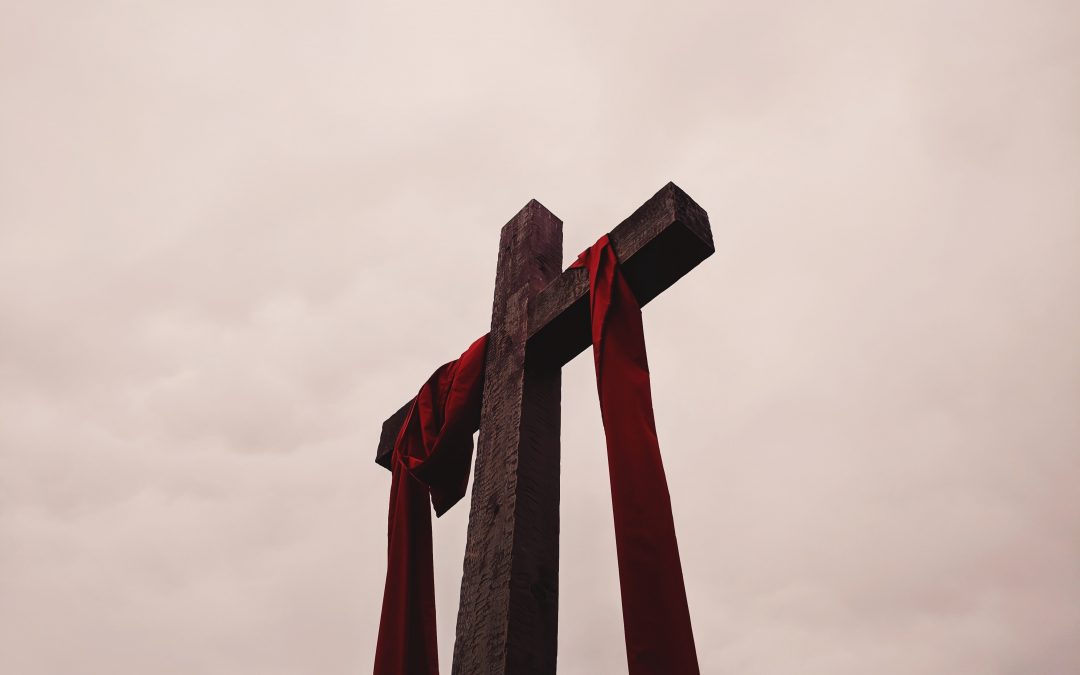Welcome to the first week of Lent and the first part of our series on the Easter story.
This year, I have felt this season could be a helpful time to study the Stations of the Cross. What can we learn from Jesus as he takes the final steps in the journey towards his own calling?
This is a great opportunity for reflection–to check in with yourself, your relationships, your work and your faith. Lent can be a powerful time of the year to slow down, focus on the health of your soul, and become more aware of the voice of the Holy Spirit in your life.
Take a moment now to check in with yourself. How are you feeling as Lent begins? What are you hoping to gain throughout the coming seven weeks? How do you feel the Holy Spirit is guiding you?
This year, I invite you to do one of three things:
- Continue your spiritual rhythms as you have been so far this year
- Reintroduce lapsed practices you have let lie dormant or make them a more regular part of your daily routine
- Foster a new sense of curiosity you’ve been desiring by introducing new disciplines into your daily routine
If you are looking for new disciplines, let me suggest two I’m especially fond of:
- Lectio Devina – This might be a new way of reading and reflecting on scripture to start your day.
- Prayer of Examen – I have incorporated a noontime Examen to “interrupt” my day, as well as an evening Examen, to lean into the rhythms of reflection and prayer.
Now, on to the focus of the first week of Lent.
Following the Stations of the Cross (we are focusing on the seven most relevant to our series), after Jesus is condemned to death by crucifixion He is forced to carry his own cross–and means of death–to the place of his execution. This is where he physically begins the journey towards his purpose here on earth:
Then Pilate turned Jesus over to them to be crucified. So they took Jesus away. Carrying the cross by himself, he went to the place called Place of the Skull (in Hebrew, Golgotha). John 19:16-17 (NLT)
Carrying a cross at the time of Pontius Pilate was meant to humiliate and torment those condemned to death. To us these many years later, it has come to mean something very different.
In Luke 9:23-24 Jesus said to the crowds following him, “If any of you wants to be my follower, you must give up your own way, take up your cross daily, and follow me. If you try to hang on to your life, you will lose it. But if you give up your life for my sake, you will save it”.
Carrying a cross is symbolic of surrender and submission to our Lord. It is laying down what the world tells us is important and instead taking up the burden of our faith. Carrying our cross requires deep trust in our Lord, and, like Jesus’s trek toward the Place of the Skull, it can feel harrowing, overwhelming and even hopeless at times. However, we also know that Jesus did not carry it alone; Simon of Cyrene was made to carry his cross once Jesus’s body began to fail him.
Every human needs the help of others to bear our cross.
Last year at this time I was going through a difficult moment. The details of the journey I went through is worth sharing.
It’s hard to describe when you’re in a spiritual fog – it casts a dark shadow over everything. In spiritual direction they call this The Wall (read The Critical Journey by Hagberg and Guelich). I needed help. Specifically, I needed help picking up my cross and, under the weight of the burden, I needed to be willing to invite people to help me stand up and take the next step. In the beginning they were baby steps, and over time they became childlike steps, then adolescent steps…you get the idea. I needed to lean into the Spirit and the people already in my life. Some of these were people I didn’t know but needed to get to know, like wise men, a counselor and spiritual director. Through the loving support of my wife, family and friends, I find myself in a much different place this year. My encouragement comes from Simon of Cyrene who was made to carry his cross once Jesus’s body began to fail him.
I certainly can’t relate to the pain and agony Jesus felt under the burden of His cross – but He relates to you and me.
Five practices that will help you carry your cross:
- Observe the Sabbath
- Fasting
- Prayer
- Community
- Mentors
Questions for reflection:
- What does it mean to take up your cross in this season?
- Where have you felt you needed help with your cross?
- Who, what, or by what means have you found help?
- What type of support do you need at this time?
- Who do you know who might need help with their cross?
I’ll close with a quote from the mystic, Teresa of Ávila (1515-1582):
“We always find that those who walked closest to Christ were those who had to bear the greatest trials.”
Coming Soon!
Our latest book, Christian Coaching Essentials is currently at the printers! This book is truly as titled—the essentials you need to learn to become a quality Christian Coach. It’s laid out to help you learn and includes bonus links to dozens of resources to help you get started. We are really excited about it and can’t wait to get the resource in your hands! Keep an eye out for its release in the next couple of weeks!
Photo by Alicia Quan on Unsplash

